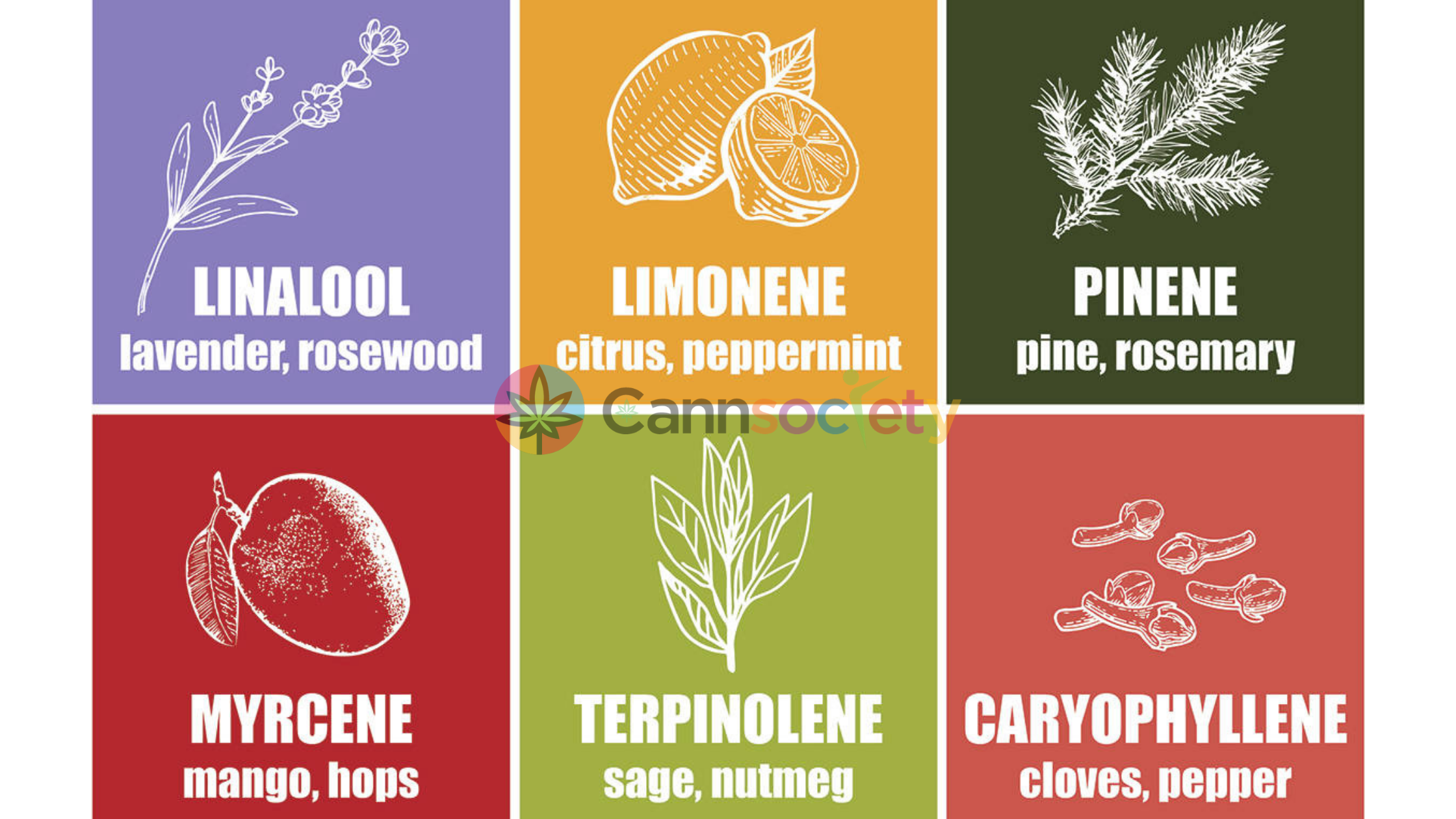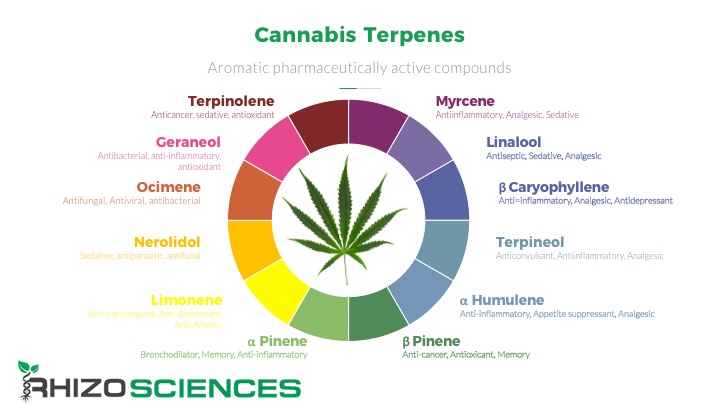
- Cann Society News
-
by ADMIN BKK
Terpinolene (sometimes denoted as “TPO”) is considered a minor, or secondary, terpene and features an aroma resembling sweet pine.
Few cannabis consumers are fully aware of the complex molecular chemistry of the herb they vaporize, smoke, or eat.
Terpenes like terpinolene are the aromatic molecules responsible for the sometimes revealingly pungent aroma of many strains of cannabis. Although the chief purpose of this family of chemicals is an evolutionary defense mechanism against pests and predators, terpenes have been found to deliver medicinal efficacy that equals that of cannabinoids such as CBD and THC.
Some terpenes are capable of making it easier for THC to cross the blood-brain barrier, therefore increasing its potency. Myrcene is a terpene that has this ability. Strains with high levels are known to result in the “couch-lock” effect. These properties have been noted as being helpful for treating symptoms associated with insomnia and diabetes.

More than 20,000 terpenes exist throughout nature, about 200 of which have been identified in various strains of cannabis. Terpinolene (sometimes denoted as “TPO”) is considered a minor, or secondary, terpene and features an aroma resembling sweet pine. It delivers a taste reminiscent of citrus and is produced in many plants in nature other than cannabis, including allspice, cumin, junipers, parsnip, rosemary, sage, and tea tree.
The Details of Terpinolene
In terms of medicinal efficacy, terpinolene kills cancer cells and acts as a sedative. In addition, it displays antibacterial properties and is both an anti-fungal and an anti-oxidant. It is employed as a flavoring agent by various segments of the food industry. It is also used to manufacture plastics and resins and is an effective repellent against pests such as mosquitoes and weevils.
A 2013 study found this special molecule to be a powerful anti-cancer agent. Concluded the study’s researchers, “Our findings clearly demonstrate that terpinolene is a potent antiproliferative agent for brain tumour cells and may have potential as an anticancer agent, which needs to be further studied.”
The Research
A 2013 study entitled “Anticancer and Antioxidant Properties of Terpinolene” that was published in the journal Arh Hig Rada Toksikol found terpinolene to be a “potent anti-proliferative agent for brain tumour cells” and surmised that this powerfully medicinal terpene “may have potential as an anticancer agent,” an issue in obvious need of further research due to the 91 million people worldwide who suffer more than 100 types of cancers.
The researchers concluded, “Our findings clearly demonstrate that terpinolene is a potent anti-proliferative agent for brain tumor cells and may have potential as an anticancer agent, which needs to be further studied.”
A 2012 study entitled “Terpinolene, a Component of Herbal Sage, Downregulates AKT1 Expression in K562 Cells” and published in the journal Oncology Letters found the terpene terpinolene to be an effective agent in the battle against a variety of cancers.
Concluded the study’s researchers, “Increased expression and/or activation of AKT is involved in a variety of human cancers. In cells treated with sage or rosemary extract, mRNA and protein expression levels of AKT1 were reduced compared with those of the control cells 48 hours after the herbal treatments. We found that terpinolene, a common component of sage and rosemary, markedly reduced the protein expression of AKT1 in K562 cells and inhibited cell proliferation.”

References
https://cannabisnow.com/terpinolene-the-powerful-medicinal-terpene-with-anti-cancer-promise/
https://www.buzzdelivery.org/terpene-effects/
https://rhizosciences.com/terpenes-entourage-effect/





